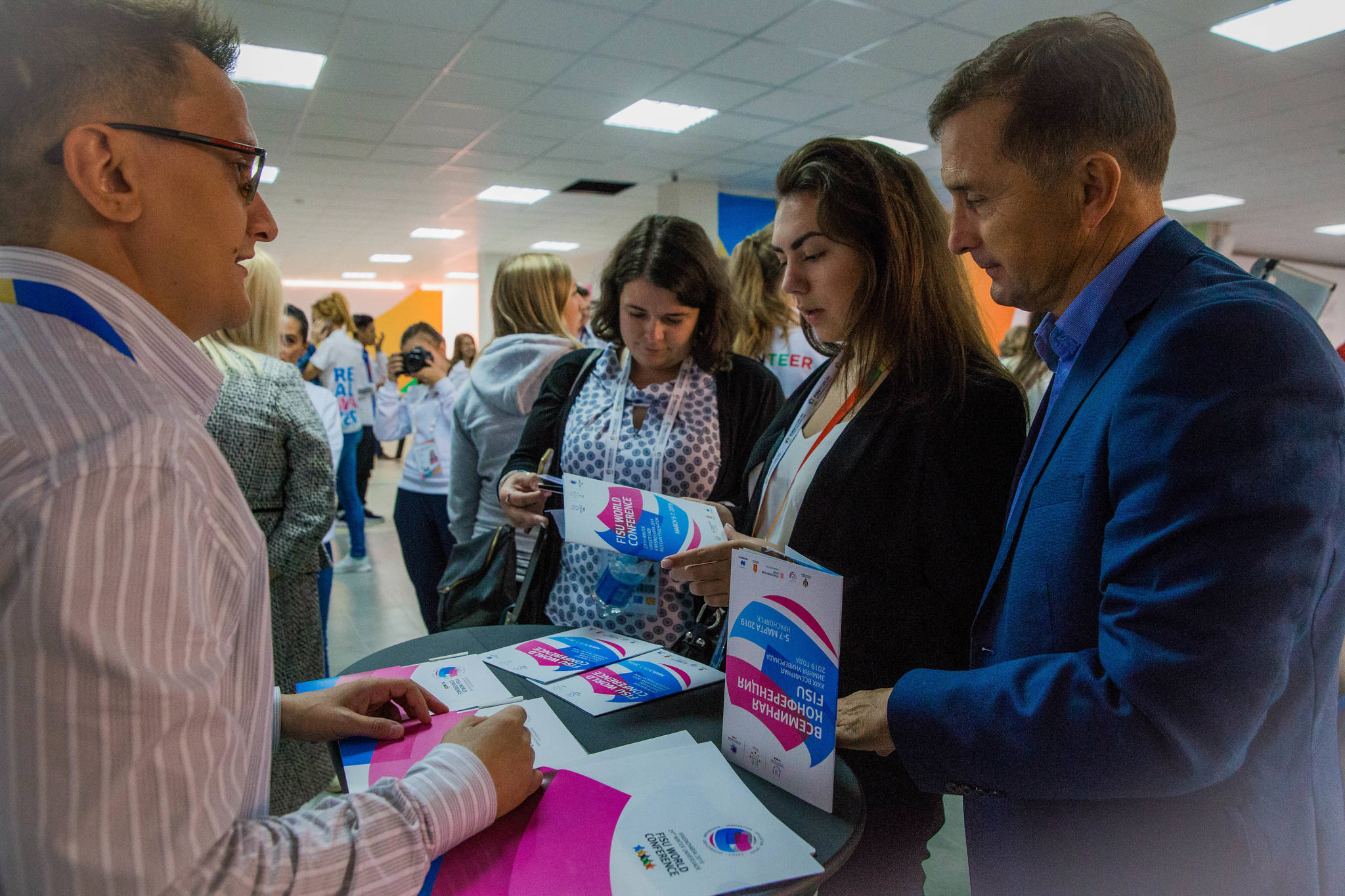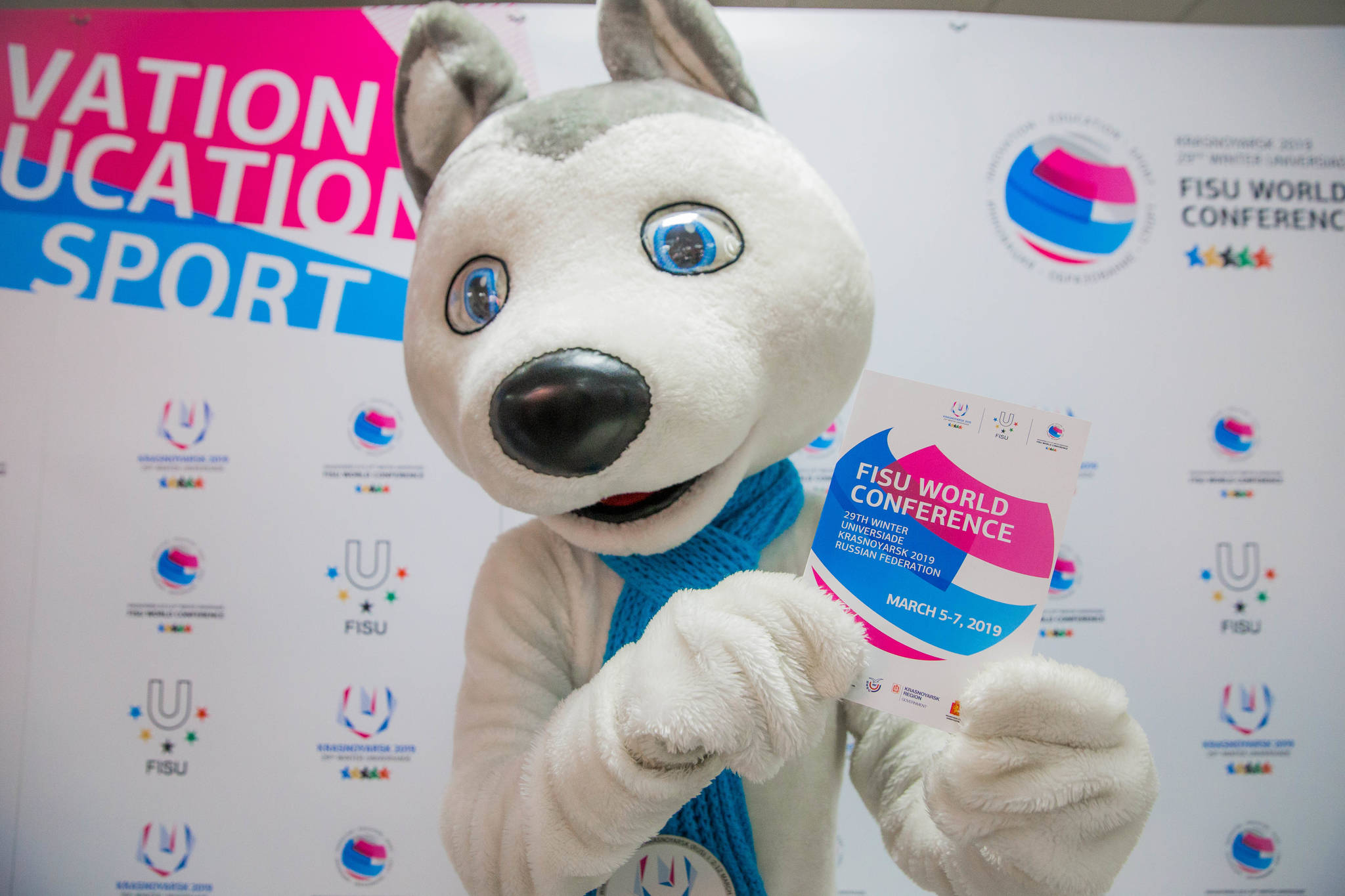
As a fan of university sport, you’re probably already well versed in how the Winter Universiade is a premiere international sports event. From cultural initiatives to educational opportunities, though, there’s so much more to this event than that.
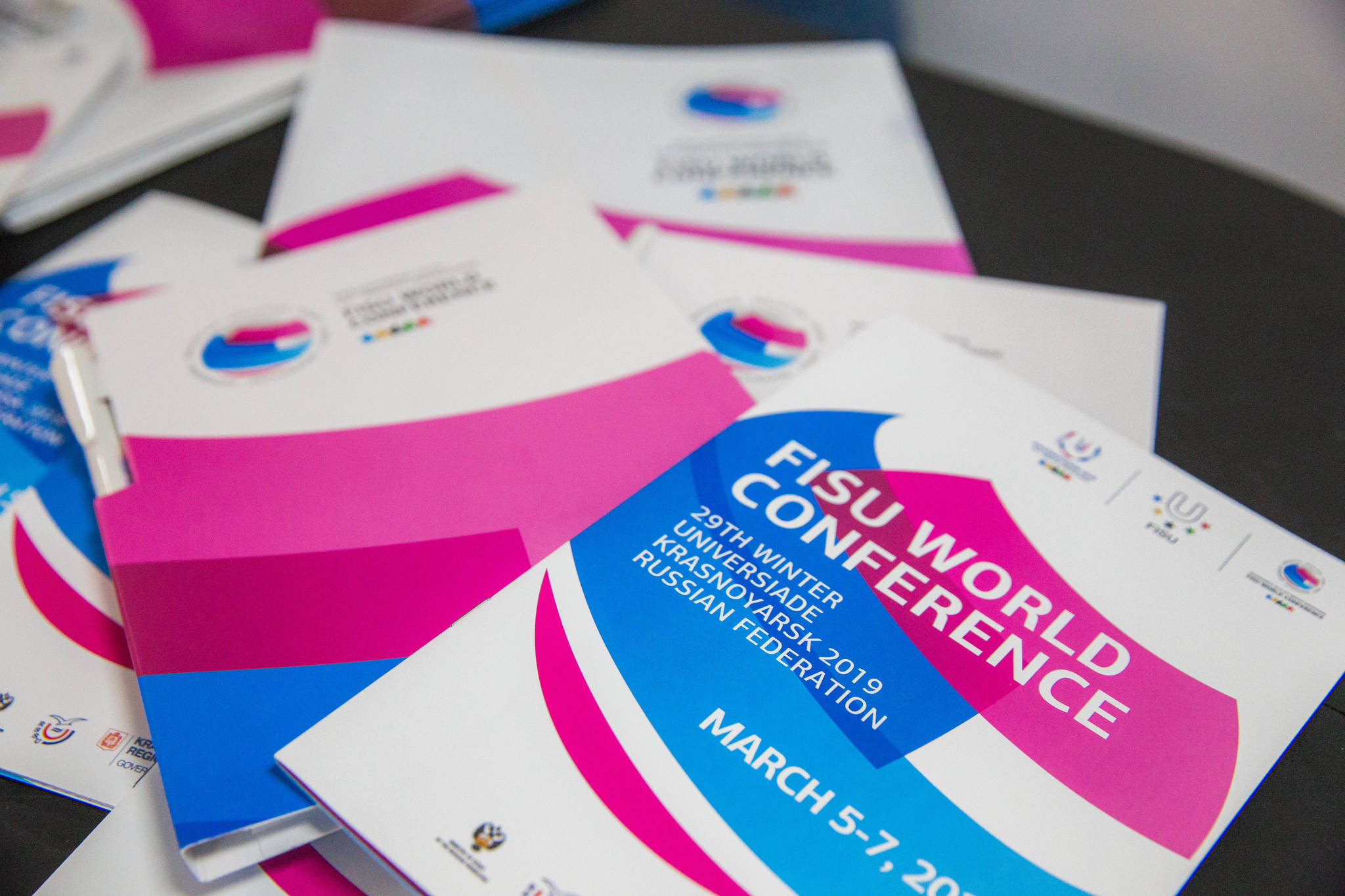 The motto of FISU is Today’s Stars, Tomorrow’s Leaders” so you can be rest assured in their commitment to assisting university sports athletes succeed, on and off the field of play. In Krasnoyarsk, this belief in combining sport + school results in the FISU World Conference.
The motto of FISU is Today’s Stars, Tomorrow’s Leaders” so you can be rest assured in their commitment to assisting university sports athletes succeed, on and off the field of play. In Krasnoyarsk, this belief in combining sport + school results in the FISU World Conference.
Running from the 5-7 March, this traditional networking platform of FISU’s allows for education exchange. This year three-day event on the U-Village campus at the Siberian Federal University dives deep into the student sports events experience, specifically on creating innovative events that emphasise legacy and sustainability.
The FISU World Conference got its start in 1951 during the 2nd International Summer University Sports Week in Luxembourg. It took one decade from its inauspicious beginning, but since the early 1960s, the World Conference has been a staple of the international university sport movement.
Nowadays, it takes place every two years at Universiade hosting cities and ensures the highest level of academic level and scientific credibility. Young researchers in sport science have an opportunity to share best practices and discuss emerging ideas that make a collective effort to grow new projects through experts in the field.
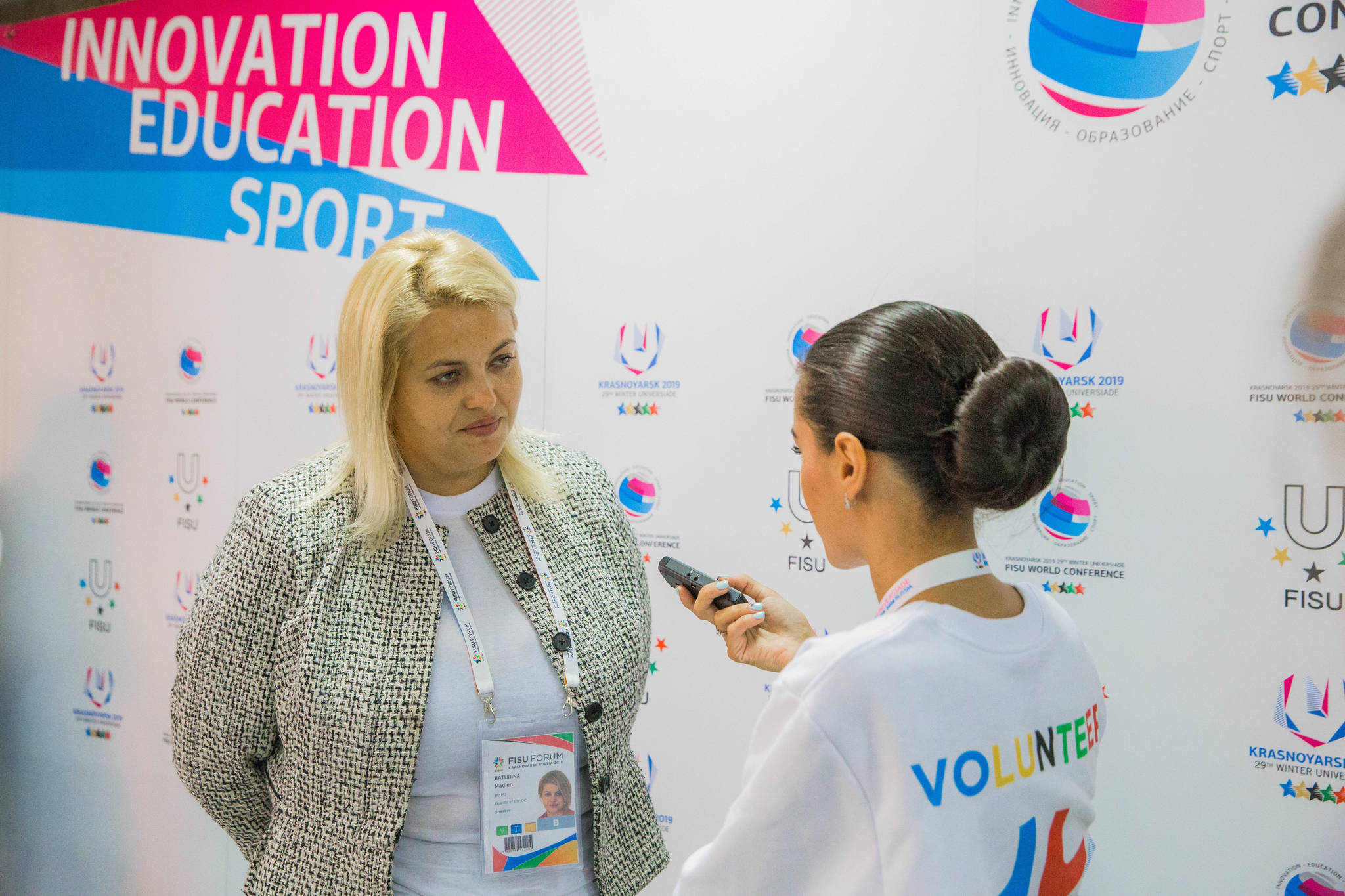 Up to 300 participants from 20 countries will attend the FISU conference this year. Five keynote speakers hailing from Belgium, Poland, Switzerland and United Kingdom will be in the U-Village to share their experience and knowledge about the impact and legacy university sports events can have across the lifecycle of a major sporting event that lasts from the bidding process to a city’s post-event heritage.
Up to 300 participants from 20 countries will attend the FISU conference this year. Five keynote speakers hailing from Belgium, Poland, Switzerland and United Kingdom will be in the U-Village to share their experience and knowledge about the impact and legacy university sports events can have across the lifecycle of a major sporting event that lasts from the bidding process to a city’s post-event heritage.
The Krasnoyarsk Conference programme offers panel discussions, parallel meetings, and round tables sessions. Taking this edition’s pioneering theme to heart, this year’s conference introduces an Innovation Expo for the first time where technical innovations and scientific solutions applied to sports will be demonstrated. Tied to this is a start-up contest that promotes sport science and fosters innovative entrepreneurship among students and young researchers.
The event opens with a flourish on 5 March at the Concert Hall Siberia and then is immediately followed by conference activities. From here, the event begins in earnest with a focus on sports organisation management. First Thierry Zintz (BEL) sheds light on the relationship between innovation, human capital and resources in sport and then entrepreneur professor Vanessa Ratten (AUS) takes over by showing how new technologies are used in sport.
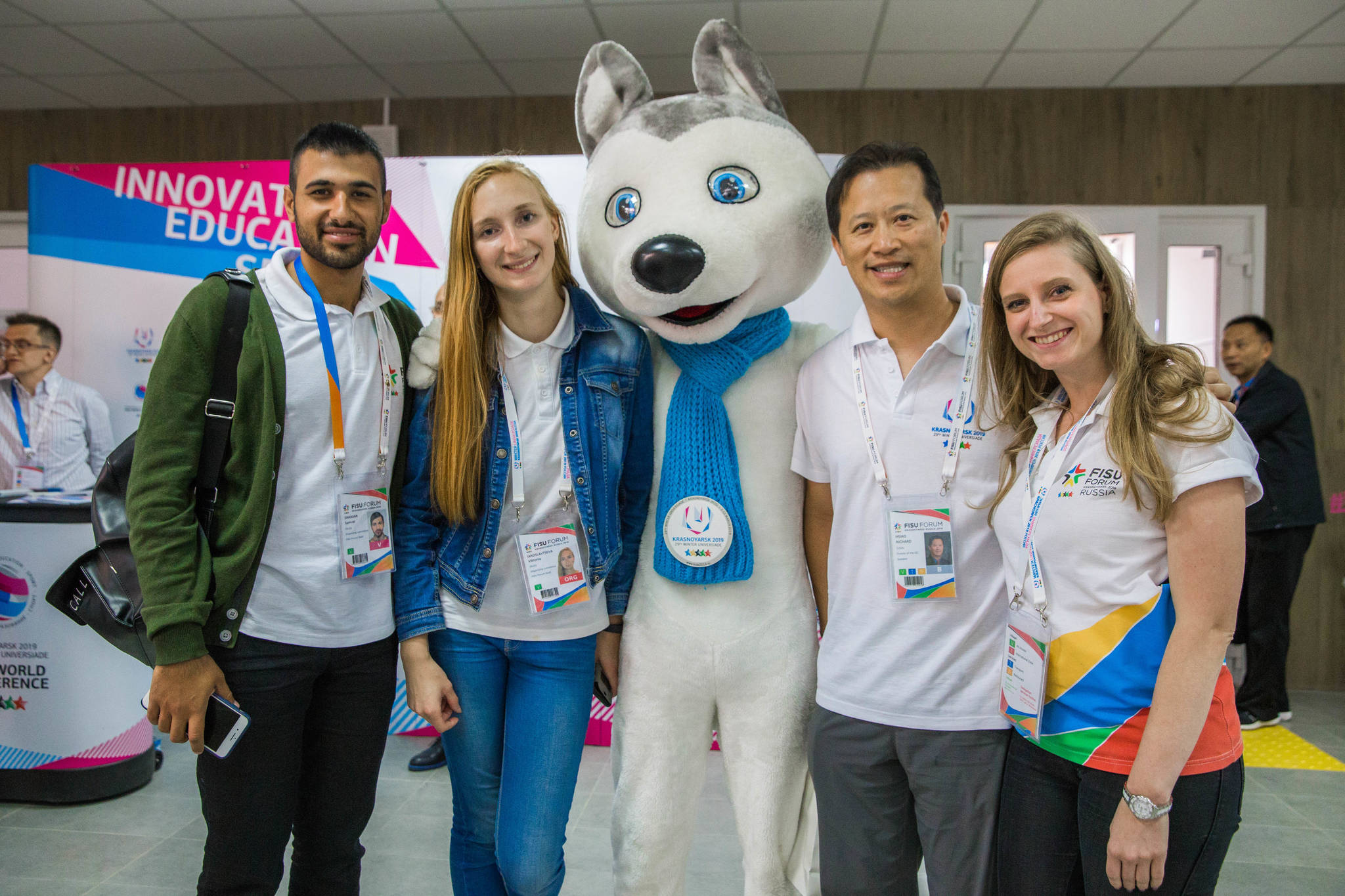
Day two of the conference kicks off with a former standout Winter Universiade alpine skier Claude Stricker (SUI) at the lectern. A sports management expert who oversees AISTS —the world’s number one ranked master’s level sport school—Dr. Stricker shares event impact study best practices. Olesya Nedvetskaya (UK) follows this up by sharing her experience on creating and measuring the social legacy that is left on the volunteers, employees, citizens, and community that host and help put on a mega sports event.
All athletes, coaches and officials are welcome to attend the FISU World Conference. FISU’s next major educational event is the FISU Forum, which will take place next year in the Hungarian capital of Budapest.
